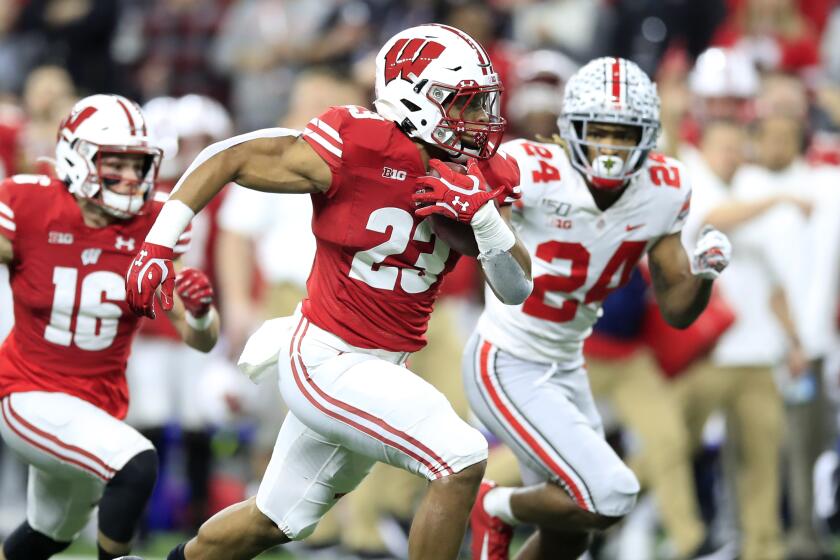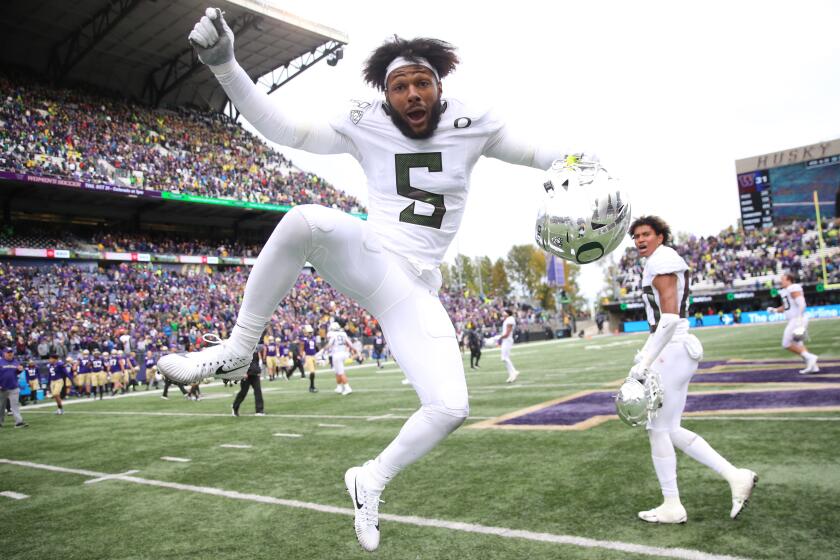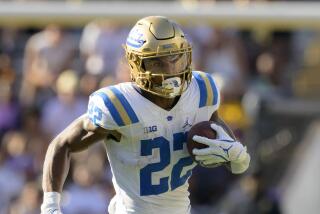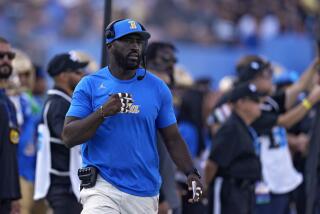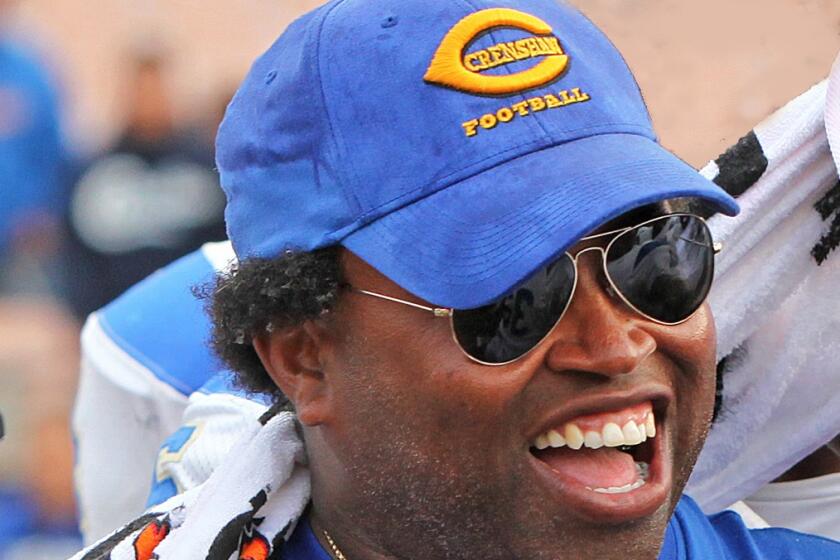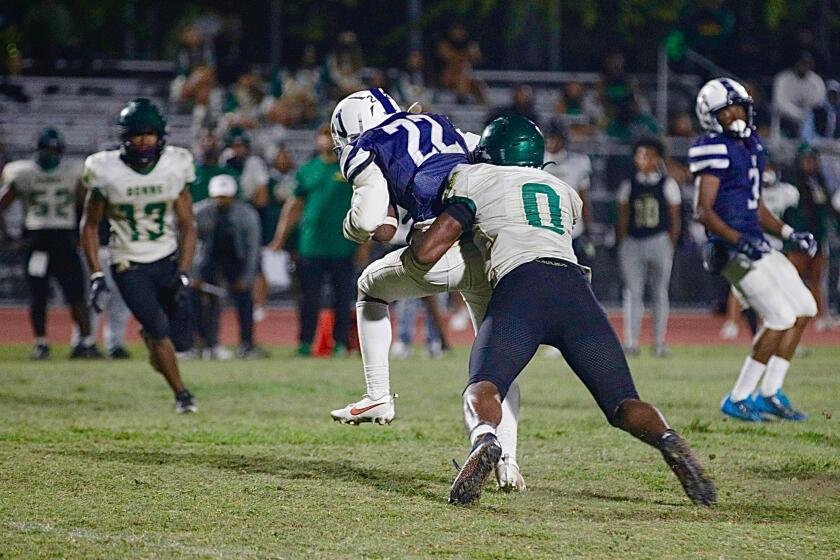Rose Bowl betting line changes could spell disaster for sportsbooks
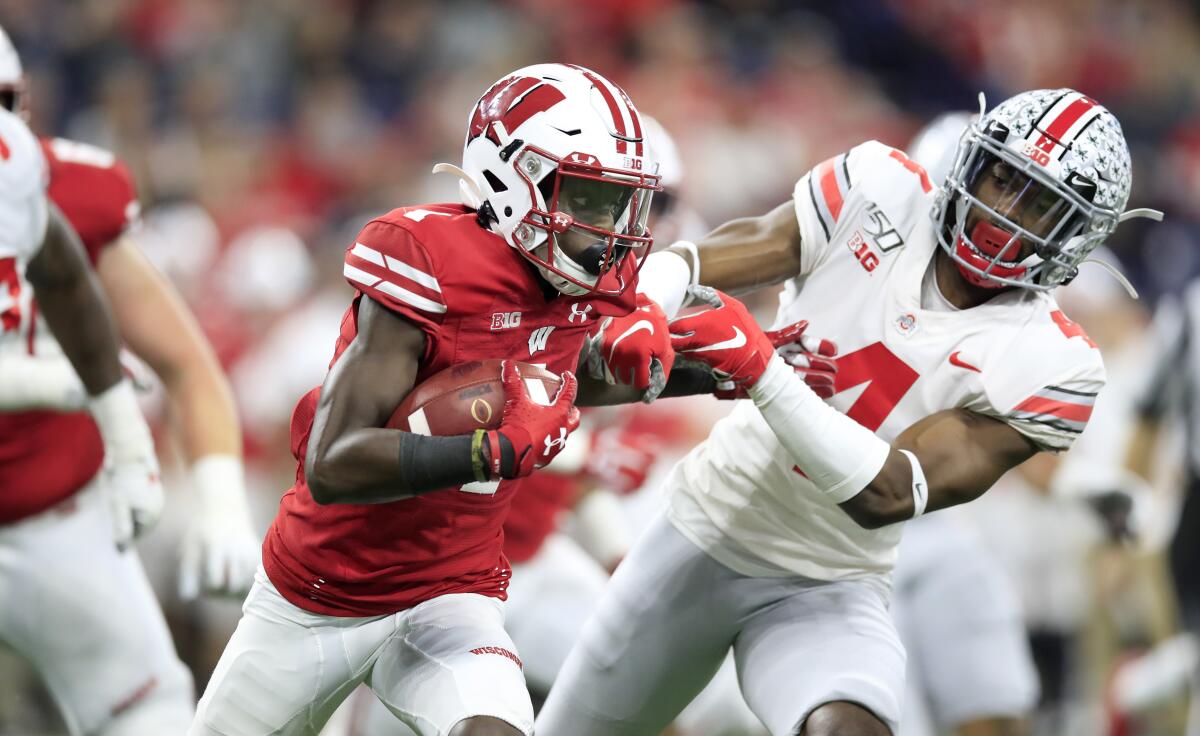
Sportsbooks are dreading potentially large exposure on the key betting number of three in the Rose Bowl, between Pac-12 champion Oregon and Big Ten runner-up Wisconsin (2 p.m. Wednesday, ESPN).
The point spread has been shuttling between 2.5 and 3 since it went up weeks ago. Favored Wisconsin draws enthusiastic support, giving 2.5 points. The Badgers are seen as the slightly superior team. Three points is the most common victory margin in nail-biters because itâs a field goal. Plus, any bettors impressed with the Big Ten so far â or skeptical about the Pac-12 after watching USC lose badly to Iowa and Washington State get bullied by Air Force â love getting Wisconsin at a low price.
But sportsbooks posting the full three are seeing Oregon bettors rush the counters enthusiastically. It takes Wisconsin by at least four to beat them at that price. Oregonâs balanced approach under coach Mario Cristobal appeals to professional gamblers and gives the Ducks a chance to compete with anyone.
Isnât that a dream for sportsbooks? Enthusiastic split action?
Split action at a locked-in number is ideal. Sportsbooks collect the standard 10% vigorish from losers (bettors risk $11 to win $10 on every bet). They use the rest to pay the winners. An easy, no-risk profit.
But split action at different prices around a key number is a potential disaster. Letâs say half of a very large handle is on Wisconsin minus-2.5, and the other half is on Oregon plus-3. If the game lands exactly on three, all the Badgers bets win. But Ducks money âpushesâ (ties) and is refunded. Nobody loses but the sportsbooks.
Wisconsinâs Jonathan Taylor is expected to declare for the 2020 NFL draft soon after playing in what would be his final college game in the Rose Bowl.
Obviously, books deal with this danger anytime a line moves. They can handle taking hits on lower-priority games, and itâs less likely to happen on non-key numbers. But if trends continue, a perfect storm is brewing in Pasadena.
Other marquee bowls this week that could see a key-number dynamic play out with half-point (or more) adjustments: Utah (currently minus-7) vs. Texas in the Alamo Bowl (4:30 p.m. Tuesday, ESPN), Auburn (minus-7) vs. Minnesota in the Outback Bowl (10 a.m. Wednesday, ESPN) and Alabama (minus-7) vs. Michigan in the Citrus Bowl (10 a.m. Wednesday, ABC).
Elsewhere
â LSU temporarily opened as a three-point favorite over Clemson in the national championship game (5 p.m. Jan. 13, ESPN). Circa Sports in Las Vegas posted that line while Clemson-Ohio State was still playing Saturday night. But the key-number dynamic probably wonât be an issue moving forward. After Clemson survived a thriller, professional and recreational bettors drove LSU all the way up to 5.5-point favorites by the next afternoon.
In the semifinals, LSU (minus-12.5) beat Oklahoma 63-28 with a monster yardage edge of 692-322, and Clemson (minus-2.5) beat Ohio State 29-23 despite being outgained 516-417 thanks to a 2-0 turnover edge, tough red-zone defense and what some would call fortunate officiating.
â College basketball bettors were shocked Saturday to see UCLA (minus-16) lose outright to Cal State Fullerton, 77-74. To the degree there was good news for Bruins fans, the loss was caused by Fullerton shooting lights out from behind the arc. The Titans were 14 of 24 on three-pointers, with five shooters making at least two. UCLA was just five of 20. It wonât make much of a Power Ratings adjustment when a surprising result is caused by extremes on three-pointers.
Top Southland high school football players are picking Oregon instead of USC or UCLA, and Pac-12 freshman of the year Kayvon Thibodeaux is an example.
â VSiN recently received a betting question from a hockey fan who asked: âI saw the term âvigorishâ mentioned, but I donât quite get what it means. Can you please explain the terminology and how it relates to betting on the NHL?â
As mentioned above, vigorishâ often called vig or juiceâ usually refers to the standard 10% surcharge applied to straight bets against the point spread. Bettors go to the counter and pay as if they will lose their bet. If they win, the clerk refunds their initial stake, then counts out their profit.
In hockey and baseball, money lines are more commonly used because parity creates so many even matchups. Here, the vigorish represents the split between what bettors have to lay to take the favorite to win the game and what they receive by taking the underdog to spring an upset.
When the Kings lost 3-2 at Vancouver on Saturday night, bettors wanting the favorite had to lay minus-175 (risk $17.50 to win $10, or anything in that ratio). Bettors wanting the underdog were taking plus-160 (risk $10 to win $16, or anything in that ratio). With money lines, vigorish refers to that split.
Fogle writes for VSiN. You can up for a free daily email at VSiN.com/newsletter.
More to Read
Go beyond the scoreboard
Get the latest on L.A.'s teams in the daily Sports Report newsletter.
You may occasionally receive promotional content from the Los Angeles Times.
